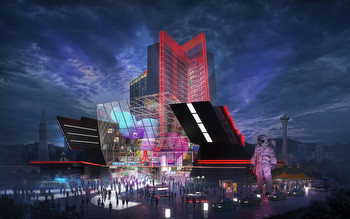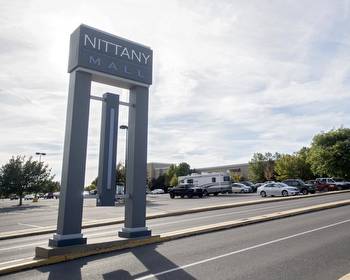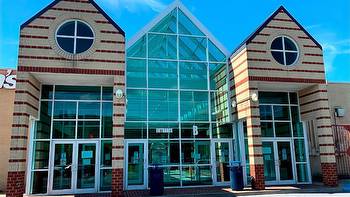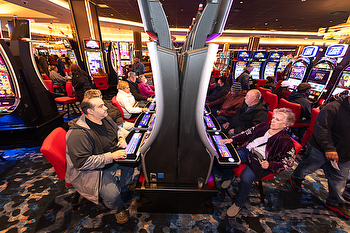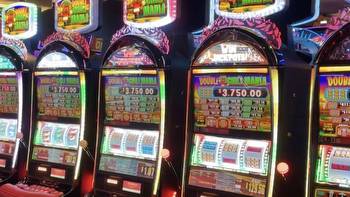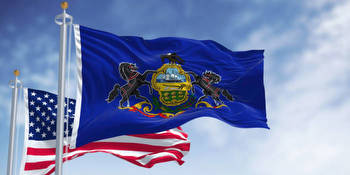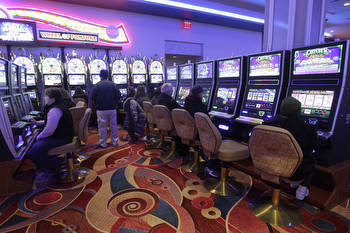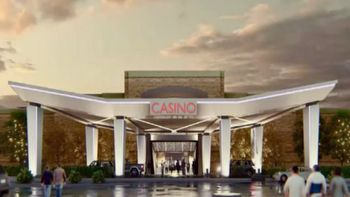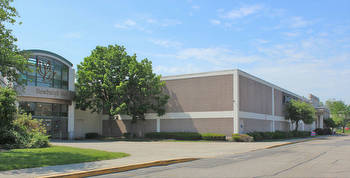Nittany Mall Casino Doesn't Mean the Downfall of Happy Valley
Preliminary design rendering of the exterior of the proposed mini-casino at the Nittany Mall. Image by Nelson Worldwide
When I turned on my computer the other day a pop-up box appeared in the lower right-hand corner of my screen. It was from the Norton Security program/app, which is designed to stop viruses, malware and other nasty things from infecting my computer. The pop-up informs me of a “Data Security Incident” that has occurred nationwide. Apparently, data shared from a 2019 MGM Resort breach is affecting 30 million customers.
This type of pop-up is extremely rare from my Norton program. The last time I recall getting something similar was due to a Home Depot breach a few years ago — a breach that apparently was so widespread that our credit card company automatically sent us a new credit card with a new number without us even requesting it.
But as I read the pop-up I thought, “Well, that’s odd? 30 million people affected by a breach at MGM Resorts?” A breach at Home Depot, sure, I could understand how that would affect a lot of people. I mean, doesn’t everybody shop at Home Depot? But MGM Resorts? I’m getting a bit old and I’ve never in my life stayed at an MGM Resort. The population of the United States right now is 332 million people. That means that almost 10% of the U.S. population could be affected by a data breach at one hotel company. That doesn’t make sense. So I looked it up.
According to MGM Resorts’ website, they have 30 properties worldwide. Searching for hotel industry estimates I found that there are over a total of 180,000 hotels worldwide and over 90,000 hotels in the U.S. alone. Meaning that a company that comprises just .0166% of the hotels worldwide somehow does business with the equivalent of 10% of the American population. How is that possible?
Gambling, that’s how.
MGM Resorts International is a global entertainment company featuring best-in-class hotels and casinos. And casinos are big business.
The American Gaming Association reported that in the United States, combined revenue from
slots, table gaming and casino sportsbooks totaled $45.62 billion in 2021. In addition, we wagered a record $57.22 billion with commercial sportsbooks. I’ll do the math for you: that’s $102.84 billion that people bet last year at legal establishments in our country. An average of $310 from every woman, man, and child. Or to get closer to home, the 157,527 people in Centre County spent over $48 million last year on legal gambling, if they held to the per-person average in this country.
And that gets dwarfed by the estimated $150 billion that is wagered illegally on sports in this country, which is an additional $450 a year from each person in America, and another $70 million in total spending just in Centre County – if the county follows the averages.
Which brings me to a hot topic around Happy Valley: the proposed casino in the old Macy’s location at the Nittany Mall. The public comment period set up by the Pennsylvania Gaming Control Board closed on Sunday, after having been open since July 21, 2021. College Township – where the proposed casino would be located – has kept a page on its website dedicated to the casino and everything associated with it.
One of the things the township tracks and displays on this webpage are all the emails sent to the Gaming Control Board – both pro and con. There are a lot of them. Quickly scanning through them it seems as if there are more emails against the casino than in favor of it, which makes a bit of sense since there are some people who have created a very basic website to list all their issues with the proposed venue.
I won’t bore you with the details from the hundreds of emails I scanned through because the basic concepts for most people’s opposition to the casino comes down to this: “A casino at the Nittany Mall would bring increased gambling addiction, poverty, and crime to our community.” The operative word in that statement being “would.” Not “could.”
This sort of posturing reminds me of two things.
The first is a bit of dialogue from the movie “The American President,” when Michael Douglas’ character (President Andrew Shepherd) says, “He is interested in two things and two things only: making you afraid of it and telling you who’s to blame for it. That, ladies and gentlemen, is how you win elections. You gather a group of middle-aged, middle-class, middle-income voters who remember with longing an easier time, and you talk to them about family and American values and character.”
The second is from five years ago, when a group of local concerned citizens camped out (trespassed?) on private property for months while opposing a new apartment complex, which was also the subject of a two-year court battle after development plans were approved. That apartment complex would provide the infrastructure for a very-much-needed regional park for kids. Here we are a few years later and the apartment complex is built and occupied by students, but because the construction of it was delayed by the protesters, some of the government money to help pay for the park disappeared. Meaning the out-of-towners got what they wanted, but the local kids suffered and continue to suffer. (The modified first phase of the park is now scheduled for completion next summer.)
The point is that the opposition to the casino seems to be all about the bad things that could happen, making you afraid of them, and causing you to do something that may be against some of your interests (increased tax revenue, more jobs, a non-vacant mall, etc.).
Having said that, I understand the opposition. I grew up in a time when casinos were bad things. The movies and news of the day pictured gambling establishments as dens of iniquity – the evil vices all rolled into one pleasure palace designed to divide you from your hard-earned money that you should be spending on your loving family instead.
Except, times change. People change. Things change.
There was a time when lotteries were considered evil gambling. They would be the downfall of society.
There was a time when driving faster than 55 mph on highways was thought to be the harbinger of thousands of deaths.
There was a time we couldn’t buy beer and wine at the Giant or Weis or Wegman’s or Sheetz. It would cause an alarming rate of alcoholism and drunks.
There was a time that marijuana was the devil’s weed and a gateway to all sorts of terrible drugs. Now we have three medicinal marijuana dispensaries in town – that seem to be busy – and only four liquor stores.
I could go on and on, but it seems like as our society moves forward, we find ways to deal with these deep-seated laws and moral codes in a way that doesn’t result in the complete downfall of society. And it’s possible we might have done that with gambling casinos.
The official tourism website of the Commonwealth of Pennsylvania’s Department of Community and Economic Development lists the location of all 14 casinos that are currently operating in Pennsylvania. They are in the Philadelphia area, Pittsburgh area, Wilkes-Barre/Scranton area, Harrisburg, Erie, and Allentown. For the most part, these casinos are all situated in areas with a good-sized population around or nearby. Is there anything even closely relevant to the situation here in Happy Valley? Small town. Bucolic. Scenic.
Actually there is.
Lady Luck Casino Nemacolin in Farmington has been open for almost nine years. It has nearly 600 slot machines and 29 table games. The proposed casino at the Nittany Mall will offer 750 slot machines and 30 table games. The population of Fayette County – 790 square miles – is 126,931. That’s 173 people per square mile. The population of Centre County – 1,110 square miles – is 157,527. That’s 139 people per square mile. Nemacolin is surrounded by small towns, bucolic state game lands, scenic state forests and mountains. As is Happy Valley.
Sounds pretty similar. And if you’ve been there you know it feels even more remote than Happy Valley. We spent a few days in the area last year and I can vouch that there is definitely no evidence of poverty or crime in the area. It was a very enjoyable place to visit.
Which is why, after looking at all the information, it made me wonder. Obviously there are a lot of people who enjoy partaking of gambling opportunities like these. It looks like it can be done in a way that doesn’t negatively impact the surrounding area, even if that surrounding area is small, bucolic and scenic like Happy Valley. Who knows, maybe it will create some jobs and opportunities for locals, and even better, create tax revenue for us so we can get rid of our oppressive local income taxes.
StateCollege.com Breaking News
Receive all the latest news and events right to your inbox.








